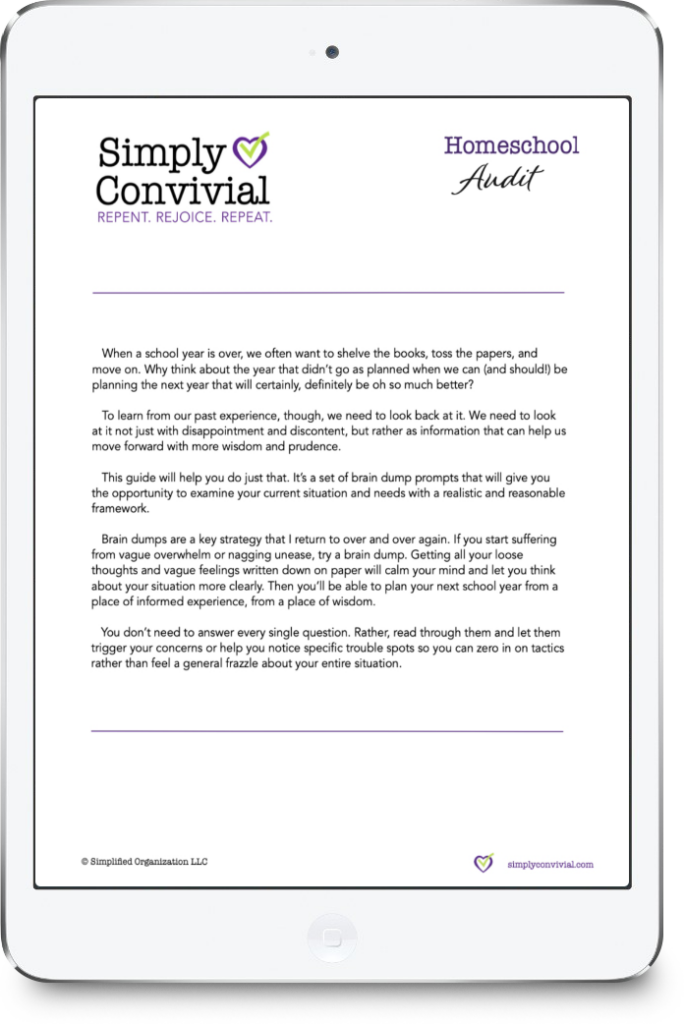
Imitation as Learning Style
When, because of our wide or internet-based reading, the concept of classical education grows into this huge, contradictory tangle that is scary and confusing, we need to zoom out and get some perspective.
Classical education has never been one monolith practice. It has always had some core values and core practices, but there has never been a single “do this” methodology.
Classical education is a river flowing dynamically through history, from Abraham’s obedience to Plato’s reasoning to the medieval church’s expansion, to the branching rivers of different traditions, all running toward the same sea, the same goal: a complete man.
We are always imitating
Not an economic cog, not a trained monkey, not a docile citizen, but a mature man. When we seek to know what we should be and then try to attain it, we are in the stream of classical education.
Let’s not add more burdens to our backs than that. Let’s look at how we might actually be, in real life, more classical than we thought.
If you’ve ever scrapped the checklist to delve deep into one topic alongside your kids, you might be more classical than you think.
What is learning?
What is teaching?
If we are going to dedicate years of our lives to this project of education, these are basic questions we must answer for ourselves.
If learning is becoming what we should be – repairing the ruins of our first parents, as Milton wrote – then what we should be sheds light on both questions. We were created as images of God, reflections of God, small mimics of God.
That is, we were created as imitations; therefore, it is when we are imitating the true, good, and beautiful that we are becoming what we should be, that we are truly learning.
We see this throughout Scripture:
Be imitators of me, as I am of Christ. – 1 Corinthians 11:1
Therefore be imitators of God, as beloved children. – Ephesians 5:1
For you yourselves know how you ought to imitate us. – 2 Thessalonians 3:7
so that you may not be sluggish, but imitators of those who through faith and patience inherit the promises. Hebrews 6:12
We are called to be imitators. Our children are called to be imitators. And that means we are called to model and mentor those under our care while we ourselves imitate Christ as well as those who have gone before us.
We need to worry less about whether our children are visual or auditory or kinesthetic learners and more about who and what they are imitating, who and what they love, who and what they want to be like.
The desire to find someone to mimic, to imitate, to be like, is part of being human. And it is a good thing. Imitation is good; it is what is being imitated that might be cause for concern.
This reality is why it is important to filter the books and the music and the friends of the young: Their tastes – what they like and what they want to be like – is being absorbed, unconsciously and indiscriminately, from everything they take in.
This reality is why it is important to have conversations as we rise up and as we lie down with our children as they grow; we must help them to see that whom they hang out with and what they spend their time doing shapes them whether they recognize it or not.
This reality is why educating and growing ourselves is crucial: Our children are becoming like us, whether we want them to or not.
As Jesus said,
A disciple is not above his teacher, but everyone when he is fully trained will be like his teacher. – Luke 6:40
Three Levels of Imitation
There are three ways we can imitate someone or something:
- Physical
- Verbal
- Intellectual
Physical imitation is the coach demonstrating the proper batting stance or the artist showing how to hold a brush.
Intellectual imitation is when the master, through questioning, leads the disciple through the process of thinking thoroughly in order to seek truth.
Verbal imitation is the bridge between the two, when a student is given models of work to copy, to memorize, to narrate.
Verbal imitation is where we spend the bulk of our instructional time in classical homeschooling. We spend time verbally expressing imitations when we teach through stories, examples, illustrations, and metaphors.
Our children produce verbal imitations when they memorize, read aloud, do copywork, and narrate. Regardless of learning style, these elements produce sound and effective teaching and learning.
And they often don’t look or feel like teaching to us.
It looks like living. It looks like playing. It looks like talking. It doesn’t look like producing. It doesn’t look like book work. It doesn’t look like mom in front of a whiteboard imparting wisdom.
Certainly there is a time and place for book work and white boards, but as we pursue true education, we need to give weight to the practices of imitation rather than of production.

Results will take longer to see. It requires trust and faith. It requires willingness to wait for the rain and the sun and the proper season.
As models rather than instructors, we must be content to be the ones to plant and to water, letting God bring the increase ( 1 Corinthians 3:5-9 ).
And it means becoming what we want our children to become: learners, lovers of wisdom and truth, watchers of beauty.
It means that we not only pay attention to what our children are surrounded by and therefore imitating, but also what we are surrounded by and therefore imitating.
Behold Christ.
Behold truth and beauty.
Behold creation and learn from it.
And invite your kids along for the ride.
The only guarantee is that it’ll be a wild and abundant one, one you wouldn’t see coming, one you wouldn’t have any other way when it’s over, because the entire journey is us growing in Christ-likeness, through ups and downs and twists and turns, and He promises to bring us to Himself in the end.
Living competently, learning attentively, loving profoundly is a lifelong project we do alongside our children, growing and becoming with them, apprenticing them as we go.

HOMESCHOOL AUDIT
Make next year better based on how this year went.
Download the free homeschool audit and use this year’s experience to make next year better.



